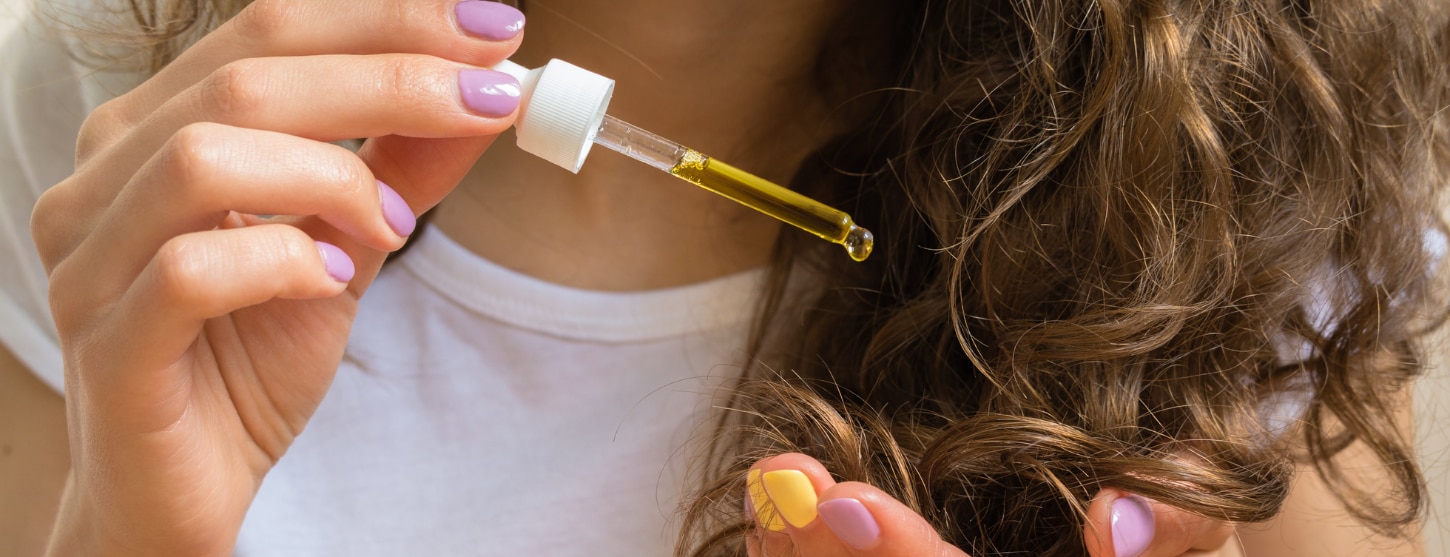15% off €25
How to get perfect skin holistically

Do you wish you had perfect skin? That you could look in the mirror and see skin that looks smooth, healthy, plumped, and well, just downright perfect!
Perfect skin is something we all dream of, but isn’t something we all have. While there isn’t a magic wand we can wave that’ll give us skin perfection (sorry), there are plenty of things we can all do that our skin will most definitely thank us for.
In this article, we guide you through how to get perfect skin holistically. Because it is possible to eat your way to healthy skin, sleep your way to healthy skin and exercise your way to healthy skin, you know…
Eat your way to healthy skin
As the saying goes, ‘you are what you eat’ and, believe it or not, it’s pretty much the case for most of us. As the largest organ in the body, our skin is impacted by the nutrition we choose to put into our bodies, in the same way nutrition can impact our heart and other major organs.1
Research has found eating food that’s packed full of protein and certain vitamins and minerals can support skin health.
3 good food rules for good skin:
Make sure you eat:
- A wide variety of fruits and vegetables - especially dark green and orange vegetables.
- Calcium-rich foods - such as fat-free or low fat milk and other dairy products.
- A range of low fat or lean meat, poultry and fish.
5 vitamins and minerals for perfect skin
Eating a healthy and balanced diet that’s full of fresh food, including plenty of fruit and veg, and minimal sugary, high fat and processed food means your body, and skin, are getting access to a range of vitamins and minerals that are essential for skin health. They include:
1. Vitamins C and E
The antioxidants in Vitamins C and E can protect skin from the sun’s harmful UV rays and help reduce damage caused by harmful free radicals, which contribute to aging skin.2
2. Biotin
The B vitamin biotin is responsible for forming the foundation of skin, hair and nail cells. When people have a B7 deficiency, one of the signs is red, scaly rashes. Biotin also plays a crucial role in metabolising fat, which is essential for maintaining healthy skin.3
3. Vitamin A
Vitamin A is found in lots of fruit and vegetables and maintains skin tissue. It’s widely linked to helping minimise wrinkles and sunspots. It increases production of the skin-smoothing protein, collagen, fights sights of UV damage and support skin tone.4
4. Zinc
Zinc works with other vitamins and minerals to tackle skin lesions. When used orally, it can reduce the early signs of maturing skin (lines, wrinkles, spots, etc.) If applied topically, it has been shown to protect the skin and help with wound healing and skin regeneration.5
5. Selenium
Selenium is key for helping protect our skin from oxidative damage. It increases our body’s ability to get the most out of certain antioxidants that helps protect cells from free radical damage.6
Foods good for skin
- Sweet potato
- Carrots
- Peppers
- Milk with added Vitamin A
- Eggs
- Salmon, mackerel and other fatty fish
- Nuts
- Avocado
- Tomatoes
- Berries
- Beans, peas and lentils7,8
Steer clear of: processed food, refined sugars and other carbohydrates and unhealthy fats that offer minimal to zero skin-friendly benefits, and do very little for your overall health too.
Make sure you: Drink plenty of fresh water every day. Severe hydration can take its toll on your skin, with some studies reporting extreme dehydration can lead to skin losing some of its elasticity.9 Drinking six to eight glasses a day is essential for good general health, and if it happens to perk your skin up too, even better.10
Handpicked content: How much water should I be drinking each day?
Summary
Eating plenty of fresh fruit and veg, calcium-rich food and lean meat, as well as getting plenty of key minerals and vitamins, such as Vitamins A, C and E and zinc, biotin and selenium, can play a role in achieving good skin.
Sleep your way to healthy skin
We all need sleep to rest and recharge from the day’s events, but research has also found that it can also do the same to our skin. This is due to the fact there’s no UV exposure or muscle movement going on when we sleep, giving it a proper chance to relax and recharge without any interruptions.11
At night, our skin goes into repair and restore mode.. It also replaces aging cells and creates new ones too. That’s why when we’ve had a good sleep, our skin can look fresher and more radiant.
3 tips for a good night’s (skin-boosting) sleep
1. Go to bed at the same time
Keeping regular sleeping hours helps programme the brain and internal body clock to get used to a set routine. Try and wake up at the same time every day. While it may seem like a good idea to try to catch up on sleep after a bad night, it can disrupt your sleep routine.12
2. Make sure you sleep for long enough
Most adults need between 6 and 9 hours of sleep every night. The best way to make sure you meet this quota is to work out what time you need to wake up, and then use as your basis to create a regular bedtime routine.
3. Create a sleep-friendly space
Make your bedroom as relaxing as possible. Clear it of any distractions, such a TVs, tablets, noises and bright lights. In fact, make sure it’s clutter-free overall and the right temperature - around 18C to 24C. Being too cold or hot can interfere with our ability to nod off and stay asleep once we have managed to drop off.
Handpicked content: Your comprehensive guide to sleeping better
Summary
Establishing a good sleeping routine, which will enable you to get 6 to 9 hours of sleep a night and includes waking up and going to sleep at the same time every day, will help you to get plenty of ‘beauty sleep.’
Exercise your way to healthy skin
Working out may leave us feeling sweaty, but as well as keeping us fit and healthy and getting our heart rate going, it can pep up our skin too.13
This is due to the fact that when our heart rate goes up, our blood vessels expand and pump more blood around our body. This improves the circulation of oxygen and nutrients throughout our body, including our skin.
Some studies have found that exercise changes the amount of collagen we have in our skin, which helps give our skin structure its overall plumpness. One study put inactive elderly adults through a three-month programme of cycling. At the end, higher levels of collagen in skin were reported.
3 tips for boosting your skin through exercise
1. Apply a sunscreen
Especially if you’re exercising outside or the sun streams in on you during your workouts. Over time, UV rays can cause skin damage and ageing. What’s more, if you’re really working up a sweat, wear a waterproof or sweat-resistant sunscreen to make sure your skin remains protected, no matter how sweaty you get.
2. Avoid using a heavy moisturiser pre-workout
It’s ok to moisturise, but using a heavy moisturiser can potentially lead to blocked pores. This is due to the fact they prevent your sweat from evaporating from your skin because they essentially form a barrier that stops this from happening.
3. Wash your face after working out
Wash your face after exercise to help prevent your skin from becoming clogged up with sweat. Use a gentle or mild cleanser or a facial wipe if you’re in a mega rush. Always follow up with a layer of light moisturiser to help your skin retain water.
Handpicked content: Easy ways to exercise at home
Summary
Exercise is just as essential for skin health as it is for our overall body health. Just make sure you look after your skin post-workout – you don’t want it to break out because your pores are clogged up with sweat and other dirt and bacteria.
Takeaway
It is possible to eat your way to healthy skin, sleep your way to healthy skin and exercise your way to healthy skin. The fact we’re all different, and depending on how disciplined we are with keeping to skin-boosting eating, sleeping and exercise regimes, will influence the results you see in your quest for skin perfection.
Plus, don’t forget, it can time for changes to our diet and lifestyle to take effect, so don’t lose heart if you don’t see a difference after sleeping well for a week or eating low fat, fresh food for a month. The main thing is, it’s not just your skin, your body will also benefit from making these changes, which are essential for overall good health.
We hope you’ve found this article useful and that it’s provided you with some valuable insight on how to get good skin. Now that you’re here, we think you may also find this article useful too, ‘8 top tips for clearer skin.’ It contains advice on good skincare products, as well as some pointers on good skincare routines, which also form a key part of the perfect skin equation.
Last updated: 30 March 2021
- https://www.sciencedaily.com/releases/2007/11/071109201438.htm
- https://www.sciencedaily.com/releases/2007/11/071109201438.htm
- https://renuerx.com/the-benefits-of-biotin-b7-for-healthy-hair-skin-and-nails/#:~:text=This%20vitamin%20aids%20in%20maintaining,essential%20for%20maintaining%20healthy%20skin
- https://greatist.com/health/vitamin-a-for-skin#benefits
- https://www.byrdie.com/zinc-for-skin#benefits-of-zinc-for-skin
- https://www.wellandgood.com/selenium-benefits/
- https://greatist.com/health/vitamin-a-for-skin#nutrition-and-supplements
- https://www.mayoclinic.org/healthy-lifestyle/adult-health/expert-answers/healthy-skin/faq-20058184
- https://www.byrdie.com/drinking-water-stay-hydrated
- https://www.allure.com/story/drinking-water-for-clear-skin
- https://www.everydayhealth.com/skin-beauty/can-you-sleep-your-way-healthier-brighter-skin/
- https://www.nhs.uk/live-well/sleep-and-tiredness/how-to-get-to-sleep/
- https://www.self.com/story/working-out-skin



